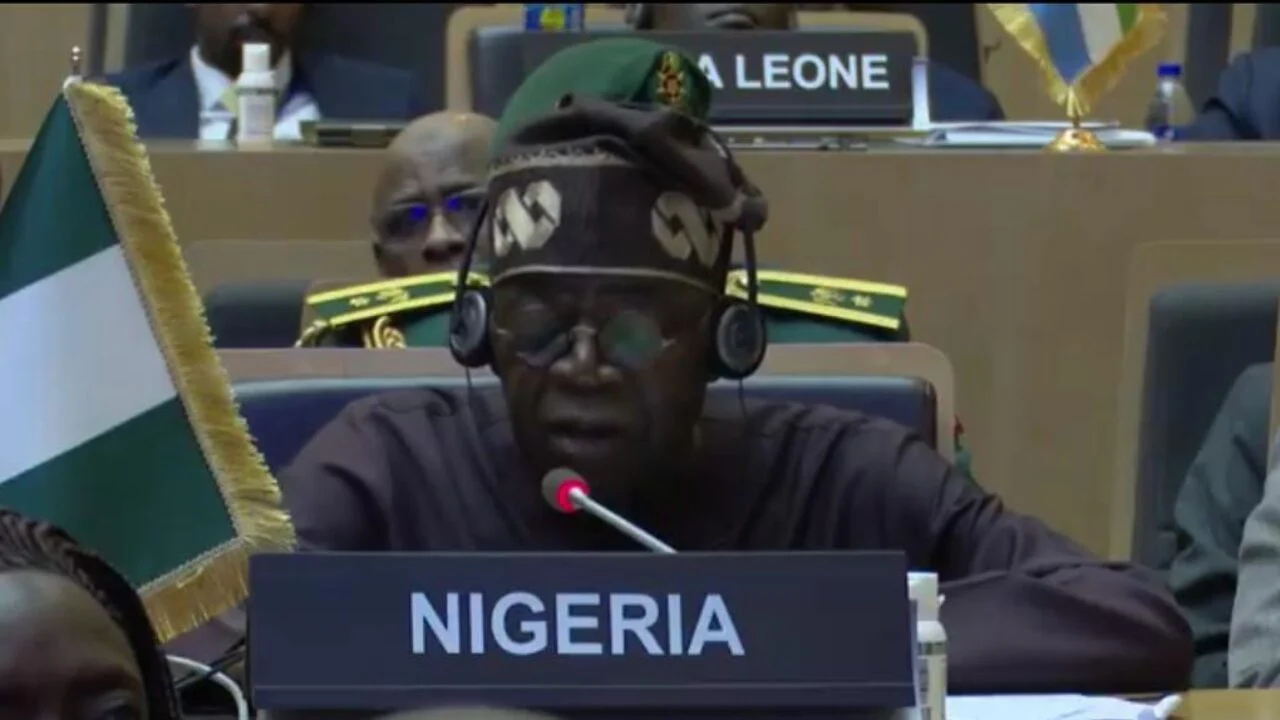
[ad_1]

President Bola Tinubu has spoken about Nigeria’s readiness to host the African Central Bank in line with the vision of the Abuja Treaty.
Addressing African leaders on Saturday, February 17, at the 37th Ordinary Session of the Assembly of Heads of State and Government of the African Union (AU) in Addis Ababa, Ethiopia, the President said his administration will engage the African Union Commission in collaboration with member states to ensure that the bank begins operation as scheduled in 2028.
He said: “As a continent and as individual nations, we face strong headwinds and difficult hurdles threatening to complicate our mission to bring qualitative democratic governance and economic development to our people. Many of these obstacles, such as climate change and unfair patterns of global trade, are largely not of our making. However, some of the pitfalls, including coup-birthed autocracies and the deleterious tinkering with constitutional tenure provisions, are developmental cancers we as Africans are giving to ourselves”.
Commenting on the military takeovers in the Republics of Guinea, Burkina Faso, Mali, and Niger, and the exit of three of these nations from ECOWAS, the President said disagreements over the unconstitutional changes of government should not mean a permanent rupture of the abiding lines of regional affinity and cooperation.
“The drive for a peaceful, strong, and united West Africa is bigger than any one person or group of people. The bonds of history, culture, commerce, geography, and brotherhood hold deep meaning for our people. Thus, out of the dust and fog of misunderstanding and acrimony, we must seize the chance to create a new people-centric era of trust and accord.
“To all who care to listen, I declare that if you come to the table to discuss important matters in good faith, you will find Nigeria and ECOWAS already sitting there waiting to greet you as the brother that you are”.
“In helping to achieve the Agenda 2063 objective of a peaceful, united and prosperous Africa, I consider African education, not only in the narrow context of the benign use of science and technology to improve the material standards of our people, but also in the nuanced appreciation of the fact that Africa must also become better educated in the humane art of democratic practice, diplomacy, and conflict resolution without violence.
“This year’s theme encourages us to remodel our educational systems to fit these goals. In Nigeria, my administration is devoting ample resources to education at all levels. From redesigning our school feeding programmes and academic curricula to making ourselves an Information and Communication Technology hub, through which we shall bring more youths into the classroom and furnish them with the tools required to flourish in the global economy of the 21st century,” he said.
[ad_2]
